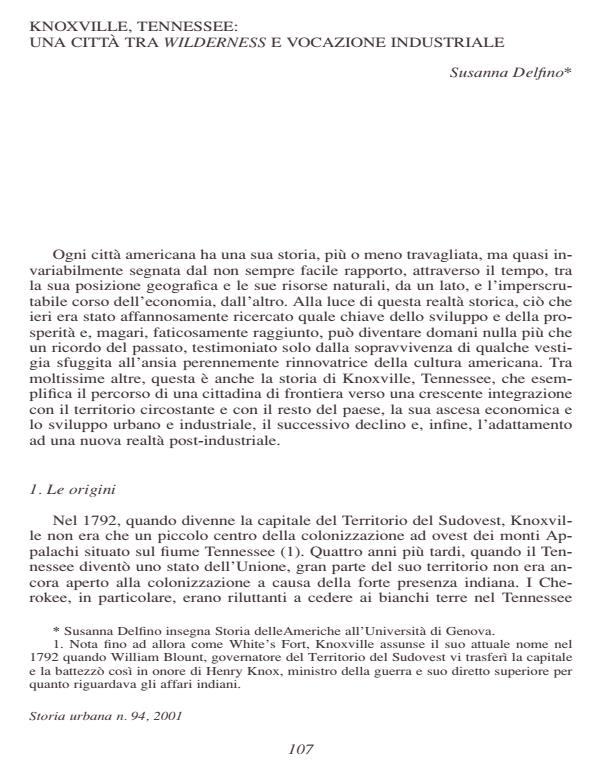Knoxville, Tennessee: una città tra wilderness e vocazione industriale
Journal title STORIA URBANA
Author/s Susanna Delfino
Publishing Year 2002 Issue 2001/94
Language Italian Pages 22 P. File size 86 KB
DOI
DOI is like a bar code for intellectual property: to have more infomation
click here
Below, you can see the article first page
If you want to buy this article in PDF format, you can do it, following the instructions to buy download credits

FrancoAngeli is member of Publishers International Linking Association, Inc (PILA), a not-for-profit association which run the CrossRef service enabling links to and from online scholarly content.
Knoxville, Tennessee, exemplifies the course of an American frontier town to regional and interregional economic integration, urban and industrial development, subsequent decline and, finally, adaptation to a new post-industrial reality. Born as a small commercial post in the wilderness, the Appalachian town acquired growing importance from 1792 when it became the capital of the Southwest Territory. The early development of an industrial vocation among its inhabitants led to the emergence of Knoxville as an important iron-making centre by the time of the Civil War. Despite expectations, however, the expansion of Knoxville as an industrial centre, which was signalled, in the 1850s, by the rise of the thriving industrial district of Mechanicsville, began to wither from the 1910s. The reasons for this decline must be looked for in the ambivalent and difficult relationship between the new challenges and growing demands of the economy at large and an Appalachian culture of separateness and resignation. Moreover, the uniqueness of Knoxville - and its Mechanicsville - as a workshop of interracial integration in the upper South, initially an asset in its process of industrialization, was lost in the wake the of mounting racism, with attendant residential and job segregation, which pervaded the United States in the early decades of the XX- century.
Susanna Delfino, Knoxville, Tennessee: una città tra wilderness e vocazione industriale in "STORIA URBANA " 94/2001, pp , DOI: